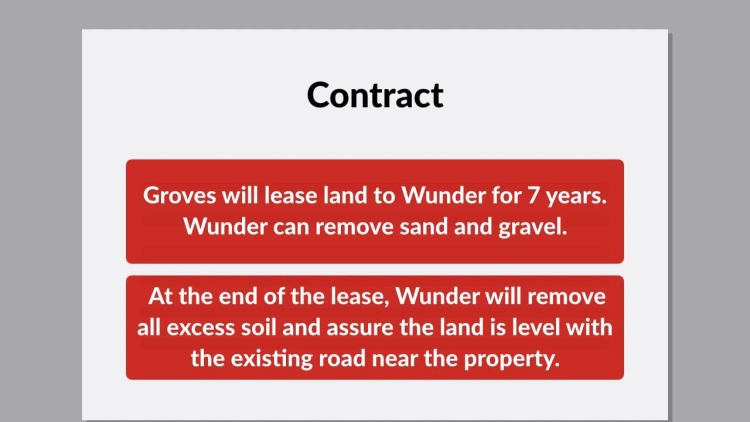Groves v. John Wunder Co.
Minnesota Supreme Court
205 Minn. 163, 286 N.W. 235 (1939)

- Written by Christine Hilgeman, JD
Facts
S.J. Groves & Sons Company (Groves) (plaintiff) maintained a plant for processing gravel on a 24-acre plot of property it owned that contained stores of sand and gravel. John Wunder Co. (Wunder) (defendant) operated a similar business nearby and entered into a seven-year lease agreement with Groves. Under the lease, Wunder contracted for a seven-year right to excavate sand and gravel from Groves’s property and for the transfer of Groves’s screening plant. In exchange, Wunder paid Groves $105,000 and agreed to remove the soil displaced in the course of processing the sand and gravel to bring the grade of the property level with the roadway. Although not part of the written agreement, Wunder also benefited from the lease because Groves was eliminated as a competitor in the sand-and-gravel industry. Wunder breached the agreement by removing only the gravel and not the excess soil, which left Groves’s property uneven and not at the agreed grade. The cost of completing this performance would have been over $60,000. Groves argued that this should be the measure of the damages. However, had Wunder performed as agreed, the value of the property would have been $12,160. The trial court determined damages as the difference between the property’s value at the time of contracting and its value if Wunder had performed. Groves appealed on the issue of damages.
Rule of Law
Issue
Holding and Reasoning (Stone, J.)
Dissent (Olson, J.)
What to do next…
Here's why 905,000 law students have relied on our case briefs:
- Written by law professors and practitioners, not other law students. 47,100 briefs, keyed to 995 casebooks. Top-notch customer support.
- The right amount of information, includes the facts, issues, rule of law, holding and reasoning, and any concurrences and dissents.
- Access in your classes, works on your mobile and tablet. Massive library of related video lessons and high quality multiple-choice questions.
- Easy to use, uniform format for every case brief. Written in plain English, not in legalese. Our briefs summarize and simplify; they don’t just repeat the court’s language.





